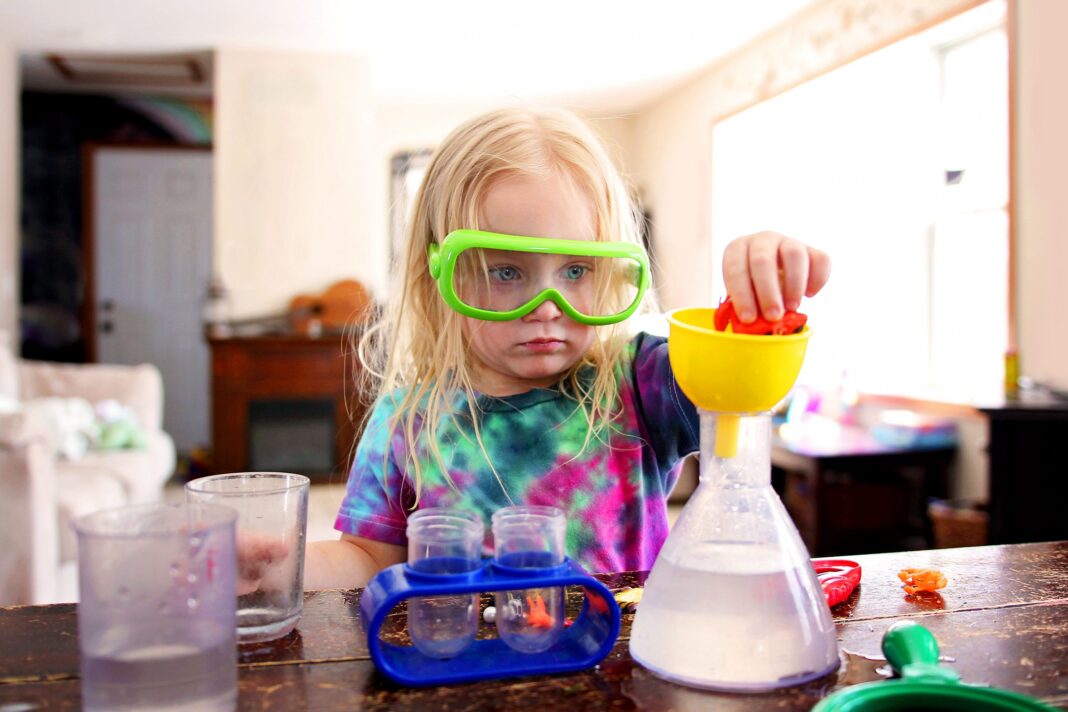Note: This post contains affiliate links, when you purchase a product or service through one of these links we may earn a commission on that sale.
As a parent, you must be aware that making learning fun is essential to keep kids engaged and interested in their studies. When it comes to science, many children may find it challenging or uninteresting. However, with a little effort and creativity, you can make science fun and exciting for your kids. Here are some tips on how to make learning science fun for your child.
Start with What They Know
Children are more likely to be interested in learning if they can relate it to their experiences. When introducing a new science topic, always start by asking your child what they know about it. For example, when studying the water cycle, ask your child if they had ever seen water evaporate or noticed how plants absorb water. This way, they can build on their prior knowledge and make the topic more relevant and interesting to them.
Use Everyday Objects
Using everyday objects to teach science concepts can make learning more hands-on and engaging. For example, when teaching about magnets, use common household objects like paper clips, refrigerator magnets, and metal spoons. Your child will be fascinated by the different ways magnets attract and repel, and have fun experimenting with different objects to see their magnetic properties.
Use Technology
Technology can be a great tool to make science more fun and engaging for kids. There are numerous science-related apps, games, and videos available that can teach science concepts in an interactive and entertaining way. These resources can help children learn while having fun and can also enhance their digital literacy skills.
Collaborate and Communicate
Collaboration and communication can help kids understand science concepts better. Encourage children to work in groups, share their ideas and findings, and discuss their observations. This way, they can learn from each other, build social skills, and develop critical thinking abilities.
Let Kids Lead
Allowing children to take charge of their learning can make science more enjoyable. Encourage them to ask questions, make predictions, and conduct their experiments. Giving kids autonomy can help them feel more invested in the learning process and can foster a sense of excitement and curiosity.
Conduct Science Experiments
Kids love to explore and discover, and science experiments can provide the perfect opportunity for them to do so. Conduct simple science experiments with your child to help them understand scientific concepts. For example, make a volcano using baking soda and vinegar to demonstrate chemical reactions. These experiments not only make science fun but also promote critical thinking and problem-solving skills.
Watch Science Videos
Videos can be an excellent way to make science fun and engaging for kids. There are many science-related videos available on the internet, from educational YouTube channels to documentaries. Watch science videos with your child, and discuss what he learned afterward. This way, your child can see how science applies to the real world, making it more interesting and relevant.
Read Science Books
Reading science books can also be an excellent way to make learning science fun for kids. There are numerous science-themed books available, from picture books for younger children to more in-depth books for older kids. Reading science books can help children learn about scientific concepts in a fun and engaging way, promoting literacy and critical thinking skills.
Go on Nature Walks
Nature walks can be an excellent way to teach children about science concepts like ecology, biology, and environmental science. Take your child on nature walks, and explore the natural world together. Discuss the different plants, animals, and habitats you see, and your child will gradually learn about the interconnections between living things and their environment.
Create Science Projects
Creating science projects can be a fun and creative way to learn about science. Make science-related crafts or projects, like making a solar system model or creating a butterfly garden. These projects not only make learning science fun but also promote creativity and hands-on learning.
To Sum it Up…
learning science fun for kids can be a rewarding experience for both parents and children. By starting with what they know, using everyday objects, conducting science experiments, watching science videos, reading science books, going on nature walks, and creating science projects, you can help your child understand scientific concepts while having fun. With a little creativity and effort, you can ignite your child’s passion for science and foster a lifelong love of learning.
It’s important to connect with real life, using technology, collaborating and communicating, and allowing children to lead, we can create a positive and enjoyable learning experience for kids, igniting their passion for science.


